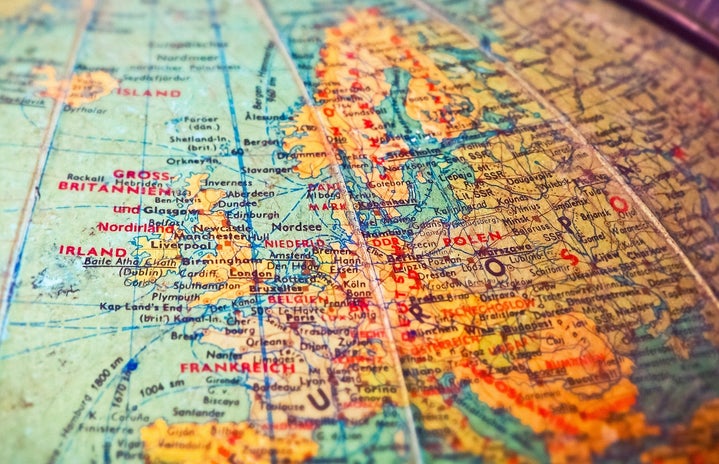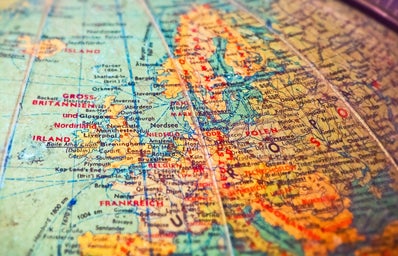The observations of a British woman who was allowed to visit Moscow, and the perspective of her Russian friend, who was not.
In a world of heightened censorship and restricted global interactions, gaining genuine insights into the daily existence of Russians amidst the ongoing war with Ukraine has become a serious challenge. Even if one were to visit Russia, it remains the case that citizens found contradicting the Kremlin on the “special military operation” (even calling it a war is a crime) would risk imprisonment. For Russians, this means expressing no anti-war sentiments, either in the form of large-scale protests or even in idle chatter with friends and family. Most foreign journalists have left. As a result, much of the rest of the world is now left in the dark regarding the civilian perspective from within Russia.
So, what is life like on the Russian home front? How does the unspoken war affect everyday existence? What impact have Western sanctions had on people’s routines and well-being?
This year, I, as a British citizen, unexpectedly found myself in a unique position to uncover some answers. While my Russian friend, whom I’ll refer to as M, remained unable to visit his family due to the fear of being unable to leave again, I had the opportunity to visit my British parents who were stationed in Moscow for work. What follows are my observations of the city of Moscow and a candid interview with M, shedding light on two pivotal aspects of life in the Russian capital.
At first glance, life looks relatively normal.
With international condemnation, economic sanctions, travel restrictions, and international banking constraints you would expect Moscow to be a tense city, shrouded in the fear of war.
Except it isn’t.
Moscow, a beautiful bustling city runs just like any other. In fact, evidence of a “special military operation” is few and far between – found only in occasional billboard recruitment adverts and the occasional “Z” symbol (a motif of pro-war propaganda).
The impact of Western sanctions on daily life seems surprisingly minimal. While some Western chains have ceased operations in Russia, the void they left behind was swiftly filled by their Russian counterparts. The closure of Starbucks and McDonald’s, for instance, has given way to ‘Stars Coffee’ and ‘Tasty & That’s it,’ brands that uncannily mirror their predecessors, from menu selection to interior décor. These replacements epitomize to me the Kremlin’s commitment to, and success in, minimizing disruption and discontent among its people. Despite continuous reports in international media outlets such as the BBC and The Guardian about the profound effects of these sanctions, and even though most of us feel it is only just that the Russian government should feel the consequences of the invasion, the unchanged lives of ordinary people suggest otherwise. Russia has plenty of great cafes, restaurants and bars of its own.
To me, the Russian people were kind and hospitable, sometimes marveling that I was the first English person they had met in a while, and became all the kinder to me for it. I was honestly taken aback by this consistent experience, expecting, for whatever reason, a level of animosity towards Westerners.
While speaking with M, I discovered that his friends have military training days at school on Mondays. This, I thought, was unimaginable, and a glaring sign of the gravity of what their country was doing in Ukraine. However, M revealed to me that his parents recall receiving similar military training in their youth, and that whilst this training might seem unusual to me, it is far less so to Russians.
Looking deeper, the excessive normalcy reveals a deeper tension within the nation.
In Moscow, the heart of Russia, the surface of daily life appears remarkably unchanged. The veneer of normalcy, however, conceals a profound undercurrent of state control and censorship of the true extent of the ‘special military operation’. By censoring Western media and monitoring the available Russian news channels, updates on the “special military operation” are few and omit the unpalatable truths.
Even the very terminology, referring to a full invasion as a ‘special military operation,’ appears to have shaped Russian perceptions of the war. In conversations with his Russian friends, M noted their casual use of the term ‘spec operation,’ devoid of the gravity one might expect. His family in Moscow hardly ever discusses or mentions the war on the phone with him, and when they do, it is without the solemnity we might expect.
This leads me to a disquieting conclusion: that the Kremlin is currently enforcing a level of censorship unparalleled since Stalinist Russia, an astonishing feat in the modern age. Moscow in 2023, stands as a city of contradictions, where the veneer of normality masks deeper tensions and a web of state-sponsored misinformation; a country that is at war but doesn’t seem to show it.


